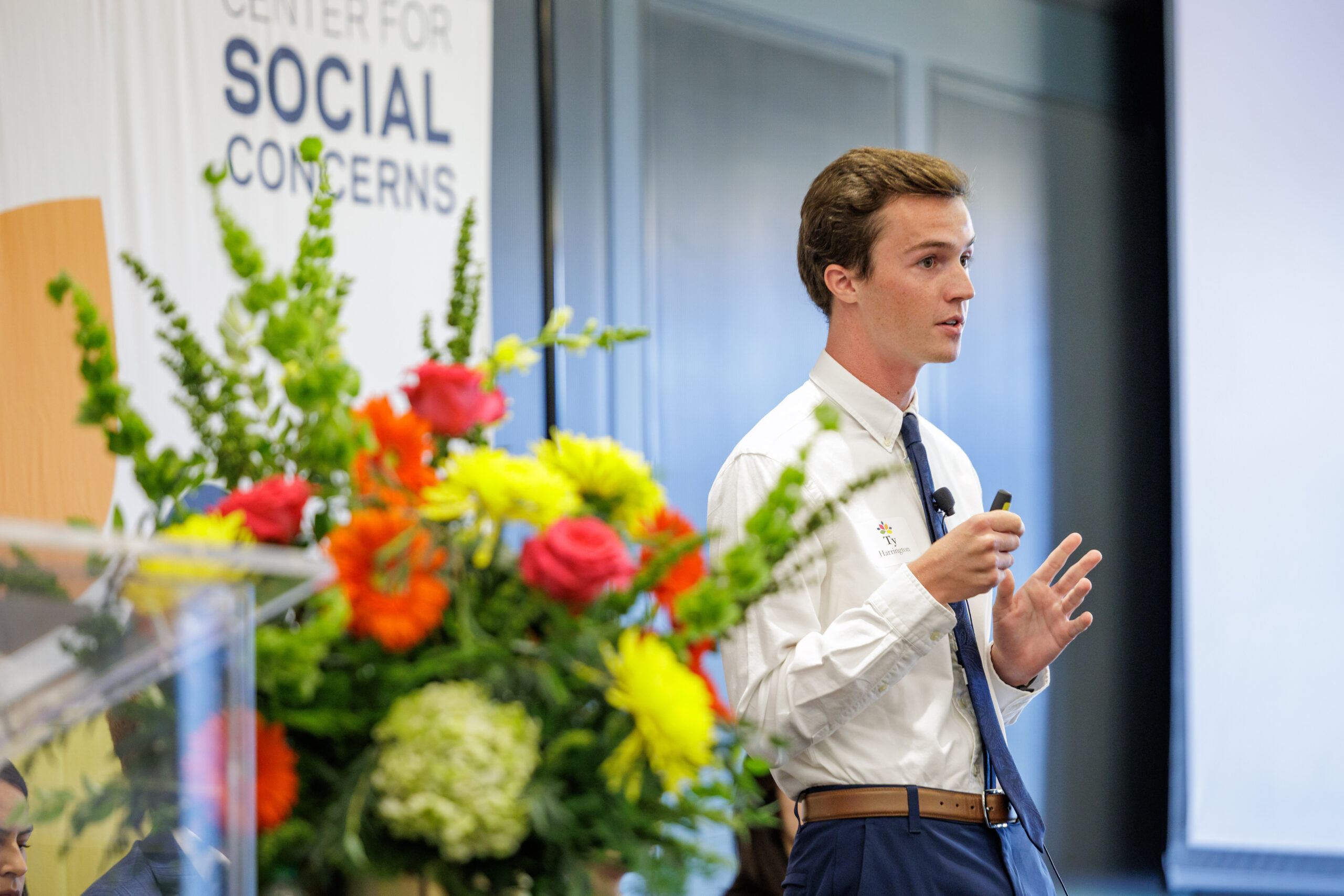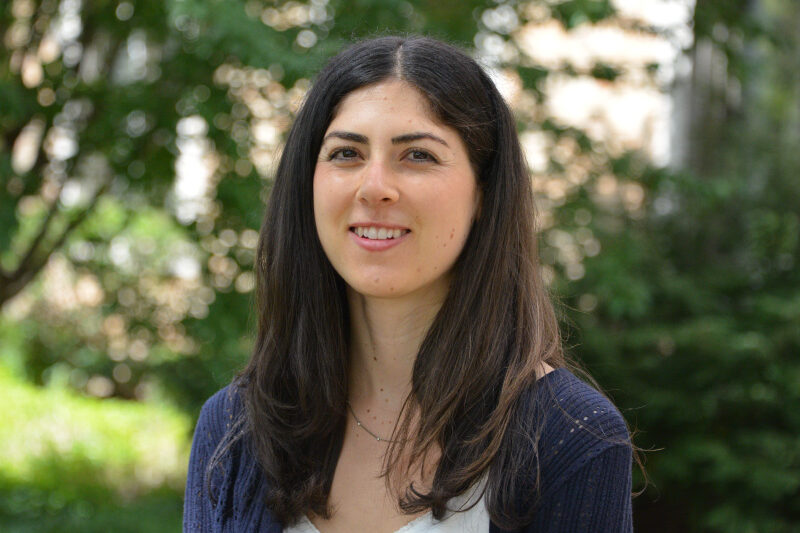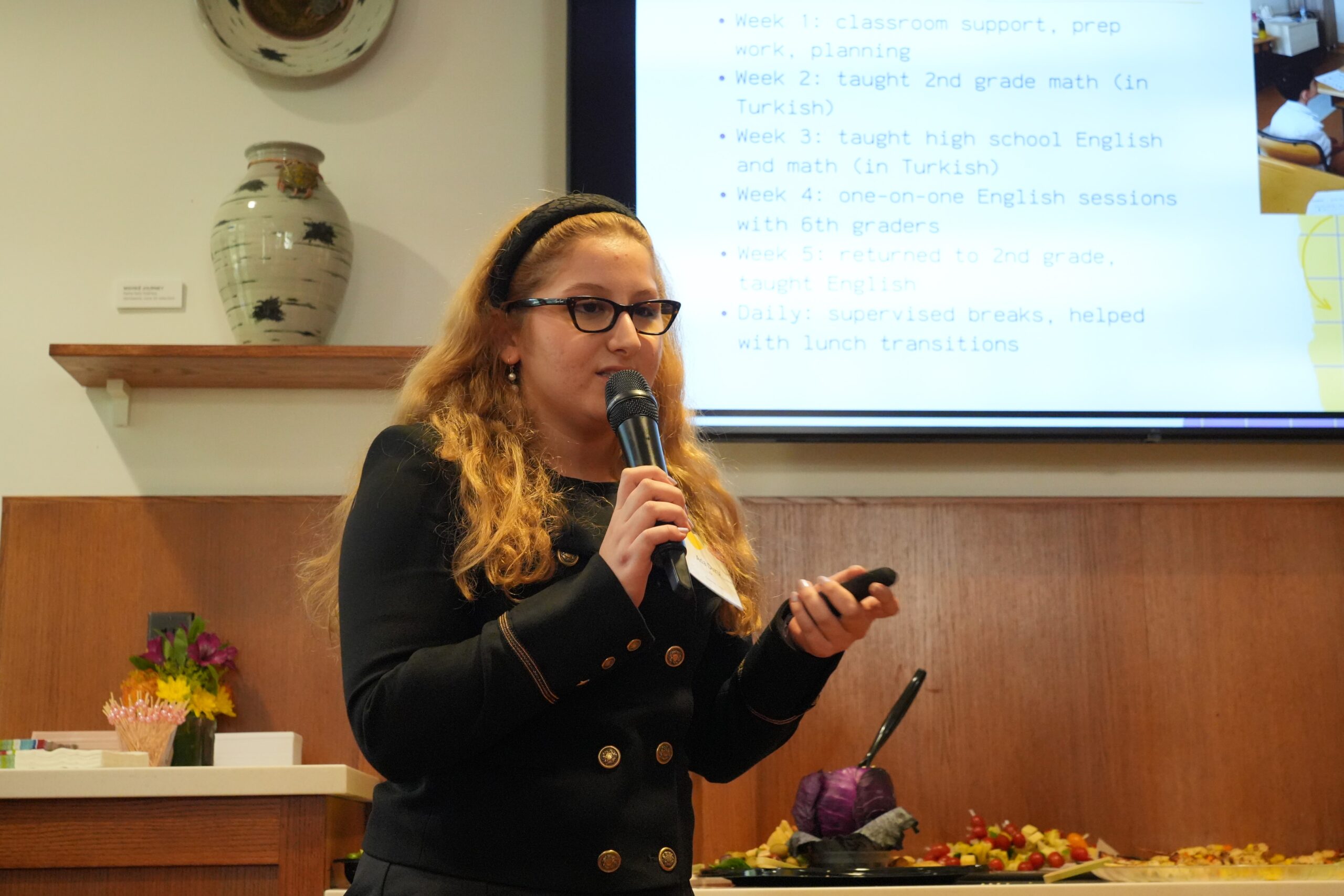Interpreting the signs of the times
International Catholic Social Tradition Conference offers interdisciplinary responses to religious nationalism
April 16, 2025
“I need you to understand the gravity of what we’re dealing with,” said Catholic historian Anthea Butler of the University of Pennsylvania to a packed crowd in McKenna Hall at the University of Notre Dame. “If you thought ‘Christian nationalism’ was just a nice phrase that you could pander around for people and make you feel better and wave a flag at church on Sundays, that’s not what this is.”
So began the opening panel of the 2025 Catholic Social Tradition (CST) Conference on the theme Signs of the Times: Interdisciplinary Responses to Religious Nationalism. Drawing on Jesus’s teaching about interpreting “the signs of the times” (Matt. 16:3), Vatican II’s pastoral constitution Gaudium et spes calls the Church to “the duty of scrutinizing the signs of the times and of interpreting them in the light of the Gospel.”

The conference responded to this call by gathering over 250 scholars of theology, sociology, political science, ethics, and more from across the United States and around the globe on March 20–22. Collectively, they offered historical, constructive, and comparative approaches to examine religious nationalism as a significant sign of the time in contemporary national and international contexts.
According to the Pew Research Center, religious nationalism is “the belief that a country’s historically predominant religion should be a central part of its national identity and drive policymaking.” While this can take the form of Hindu nationalism in India, Jewish nationalism in Israel, or Islamic nationalism in Muslim-majority countries, for much of Europe and the Americas it takes the form of Christian nationalism. The conference thus placed special attention on gathering Catholic and other Christian scholars to assess the rise of Christian nationalism and to develop responses and alternatives as part of the duty to scrutinize the signs of the times.
Tomomi Naka traveled to the conference from Tottori University in Japan, where she is on the faculty of regional sciences. “I was impressed by how some presenters incorporated their beliefs into their talks,” she stated. “I did not know much about Catholic traditions, and I felt it was fortunate for me to have some glimpse of it through this conference.”
Notre Dame senior Aiza Flores stated that, as a Latina evangelical Christian, she attended the conference because she has been “disturbed by the damaging rhetoric coming from self-proclaimed evangelical Christians in the current political sphere.”
“I know the Christ I serve wouldn’t stand with the hatred and divisive rhetoric coming from a myriad of people within the evangelical community,” Flores reflected. “This conference provided a better perspective on the damage of nationalism becoming interwoven with religion.”
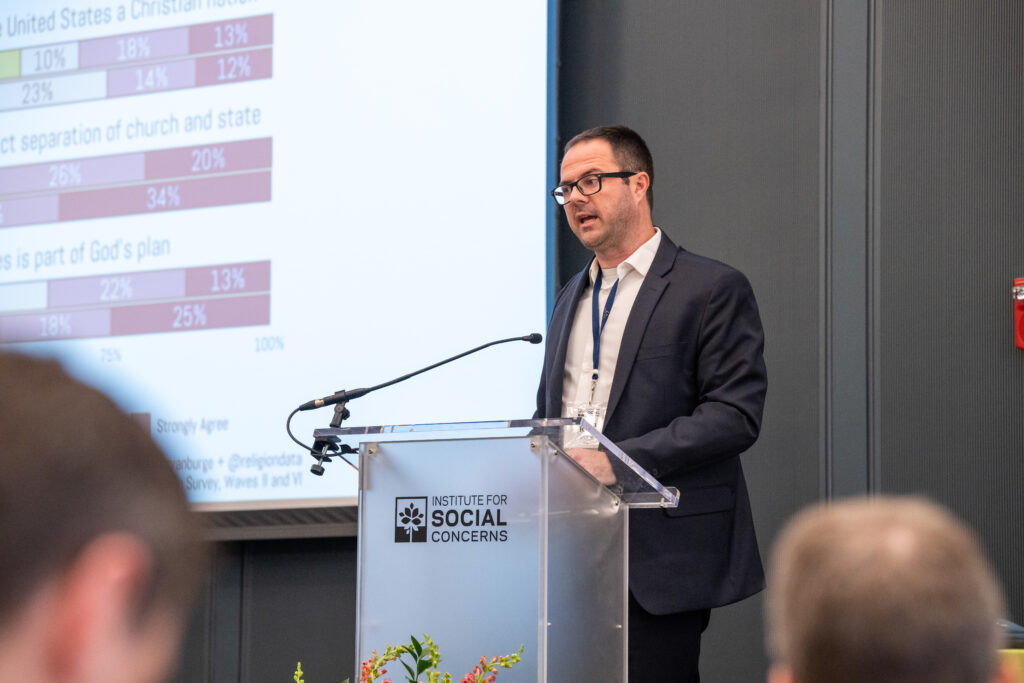
On the opening panel, theological ethicist Reggie Williams of St. Louis University bolstered Butler’s concerns, calling Christian nationalism “the most pressing crisis today” and noting that it provides “moral justification for mass use of violence.” Meanwhile, political scientist Ryan Burge of Eastern Illinois University drew from survey data from the Association of Religion Data Archives to argue that the prevalence of Christian nationalism in the general US population has declined in recent years. Likewise, sociologist Gary Adler of Penn State University cited surveys he conducted with local politicians from across the country to argue that Christian nationalism has a marginal role in policy decisions at the municipal level.
Across their differences, the panelists concluded with agreement on the need for empathy. “The question is, would you want somebody to do that to you?” said Butler. “That’s having empathy.” Williams added that “empathy is a pro-social concept. Empathy means that we have the capacity to be disturbed by something bad happening to someone else that we see.” Burge agreed, stating that empathy is “what makes us human.”
After defining Christian nationalism and assessing its impact, the conference turned to constructive Christian responses to it. On Friday morning, New Testament scholar Drew Strait of Anabaptist Mennonite Biblical Seminary, religious historian Kristin Kobes du Mez of Calvin University, and religious studies scholar Matthew D. Taylor of the Institute for Islamic, Christian, and Jewish Studies discussed the role of Scripture both in giving rise to Christian nationalism and in responding to it.
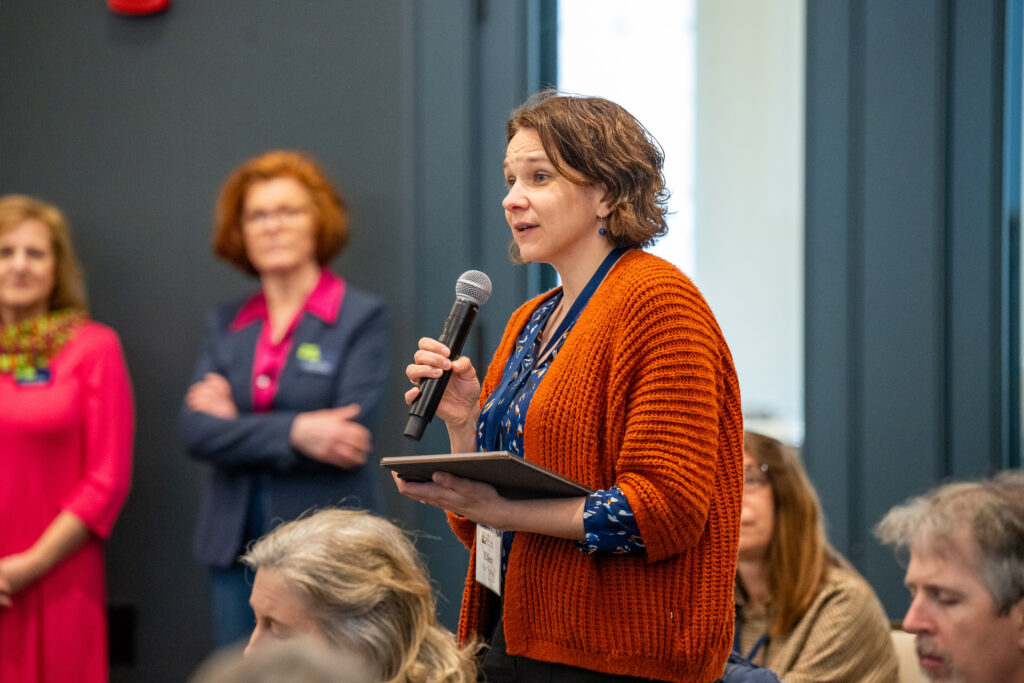
Catholic theologian Emilce Cuda, who is currently serving as secretary of the Pontifical Commission for Latin America at the Vatican, and peace studies scholar Janna Hunter-Bowman of Anabaptist Mennonite Biblical Seminary discussed the role of ideology in their Friday afternoon keynote. “It’s important to distinguish the difference between ideology and theology,” Cuda argued. “Ideology is the discourse about the idea. For us believers, God is not an idea. God exists.”
On Friday evening, Catholic social ethicist Ellen Van Stichel of KU Leuven, Belgium, political historian Ferenc Hörcher of Ludovika University of Public Service, Budapest, Hungary, and Catholic social ethicist Clemens Sedmak, director of Notre Dame’s Nanovic Institute for European Studies, turned attention from the US context to the European one. Sedmak observed that Jesus could have used his power to send legions of angels to make himself great but chose not to do so (Matt. 26:53). “What does that mean for us as we ponder nationalism?” he asked.
Notre Dame moral theologian Jean Porter moderated a session on Saturday morning with Abdullahi A. An-Naim of Emory University School of Law on the legal and political importance of human dignity, particularly in Sudan. An-Naim spoke of how “Sudanese are dying in the hundreds of thousands to defend their human dignity and identity as human beings” and shared how he “was imprisoned in Sudan” and his “teacher was executed in Sudan in 1985 for advocating these ideas.” But despite all the suffering, he argued that “some of us have to maintain a vision of optimism precisely in order to uplift.”
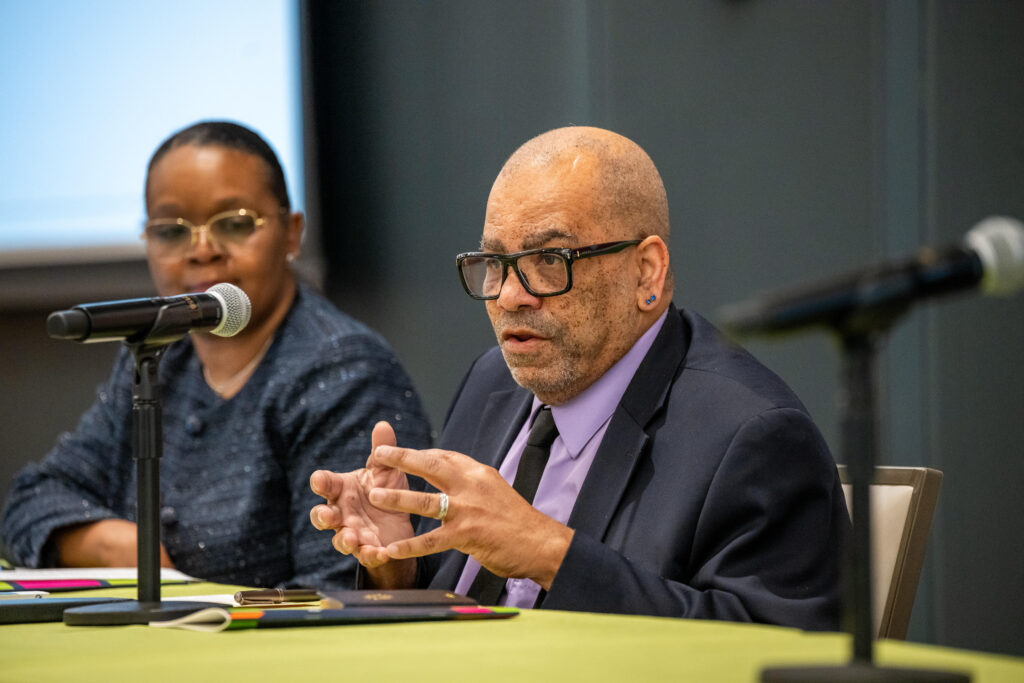
The conference concluded with a discussion of “beloved community” as an alternative to Christian nationalism. Notre Dame’s Rev. Hugh R. Page Jr., vice president for institutional transformation and advisor to the president, and Keona Lewis of the Institute for Social Concerns and office of the provost, led the conversation. Page described 10 features of the beloved community, including its commitment to “an ethic of compassionate care and comprehensive nurture of all of its members.” He noted that human integrity and solidarity, two key touchstones in CST, are central to the beloved community.
Lewis stated that the reason to focus on the beloved community to conclude a CST conference is because it aligns perfectly with “ideas of justice, human dignity, caring for the common good, and solidarity.”
In addition to plenaries were dozens of concurrent sessions, a lunch with the authors of the CST book series, and a dinner presentation by the Vatican-sponsored Future of Work, Labour after Laudato Si’ (FOWLS) project with labor historian Daniel Graff of the Institute for Social Concerns and members of the FOWLS Project from across the Americas.
A significant feature of the conference was an art exhibit curated by postdoctoral research fellow Geneva Hutchinson that demonstrated ways art can be utilized for justice by showing the realities of injustice, offering visions of what a just world might look like, and providing insights into others’ worldviews that might not otherwise be available.
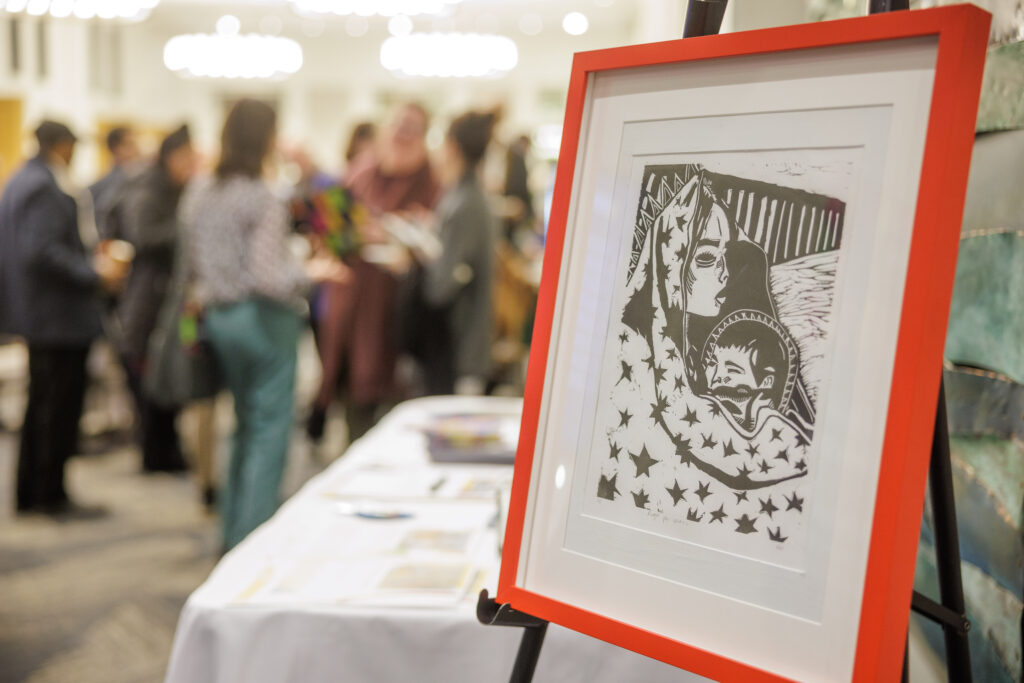
Beginning in 2011 with a celebration of 120 years since the promulgation of Rerum Novarum, the biennial CST Conference, hosted by the Institute for Social Concerns, commemorates anniversaries of significant CST documents, including the fiftieth anniversaries of Pacem in terris in 2013 and Populorum progressio in 2017. Keynote speakers have included R. Scott Appleby, Lisa Sowle Cahill, Rev. Gustavo Gutiérrez, O.P., Sr. Helen Prejean, CSJ, and Miroslav Volf, among other prominent scholars and practitioners.
This year’s conference commemorated the sixtieth anniversary of two significant Vatican II texts, Gaudium et spes (Pastoral Constitution on the Church in the Modern World) and Dignitatis humanae (Declaration on Religious Freedom). Released on the final day of Vatican II, these texts together invited serious consideration of the role of the church and other religious communities in relation to the state.
For more on the conference, see the videos of the plenary sessions.
Related Stories
-
Social Concerns Summer Fellow returns to India for ongoing research
-
ReSearching for the Common Good: Solbee Kang
-
Bridging worlds through art—Kyla Walker joins institute as international poetry justice fellow
-
The power of encounter—RISE Hometown prepares incoming students for learning in service of justice at Notre Dame
-
The beauty of everyday democracy—Institute convenes scholars, practitioners, Luke Bretherton for democracy conference

